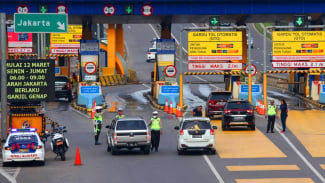VIVAnews – Corruption is considered an extraordinary crime that could cause grave suffering the public. According to Special Crimes Solicitor General, Marwan Effendi, death penalty for corruption offender could be implemented.
According to him, the imposition of severe criminal penalties must continue to be implemented firmly and consistently. “For deterrence and prevention,” he said during a Law Seminar at Pelita Harapan University, Jakarta, Thursday, Nov. 27.
Death penalty for a corruptor, says Marwan, has legal basis, both in the Criminal Code and in Article 2, clause (2) of Law no. 31/1999 as amended by Law no. 20/2001 regarding Eradication of the Crime of Corruption.
“Even though the criminal law is symptomatic, and not causative, because it has a limited reach,” said Marwan.
Aside from Marwan, several other figures also spoke about the death penalties, including Prof. Dr. Ronny Nitibaskhara, member of National Law Commission, Agun Gunanjar, and Head of National Human Rights Commission, Ifdhal Kasim.
Meanwhile, according to Ronny Nitibaskara, Criminology lecturer at the Universitas Indonesia, there are five factors that drive government officials towards corruption that make them unafraid of heavy punishment, even the death penalty, when they are in committing the act of corruption.
The first factor is anxiety or worry about the future financial security that arises from looking at day-to-day social realities. Second, the high demand when holding an office. Third, a crisis of moral and spiritual integrity. Fourth, the seduction of the power of discretion. And finally, the official does not see first-hand the consequences of his actions on the victims or the public.
“If these five factors are accumulated, then the official would engage in corruption and tend to be unafraid of the severity of the legal sanction,” Ronny said.
According to Ronny, the death penalty is required in punishing corruptors that are proven to be guilty in court. Countries use the death penalty to punish crimes that are deemed to disrupt national security. To compare, said Ronny, China puts corruption as a crime that disrupts national security.
“There, corruptors are severely punished. The perpetrators could get the death penalty,” explained Ronny.
Meanwhile, Nur Kholis, member of National Human Rights Commission, while supporting the eradication of corruption, he rejects the death penalty for corruptors. According to him, there is no scientific proof that the death penalty reduces certain types of crimes. In addition, the death penalty has another element that violates human rights, that is, psychological torture.
“There is a considerable time span between the verdict and the execution,” he said.
VIVAnews writers Elin Yunita Kristanti, Zaky Al-Yamani and Ita Lismawati F. Malau contributed to this article.
















